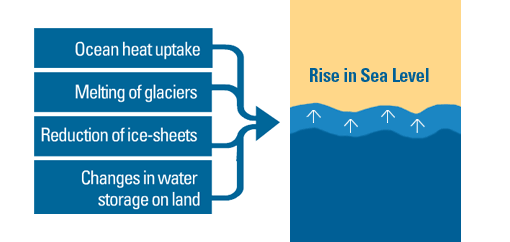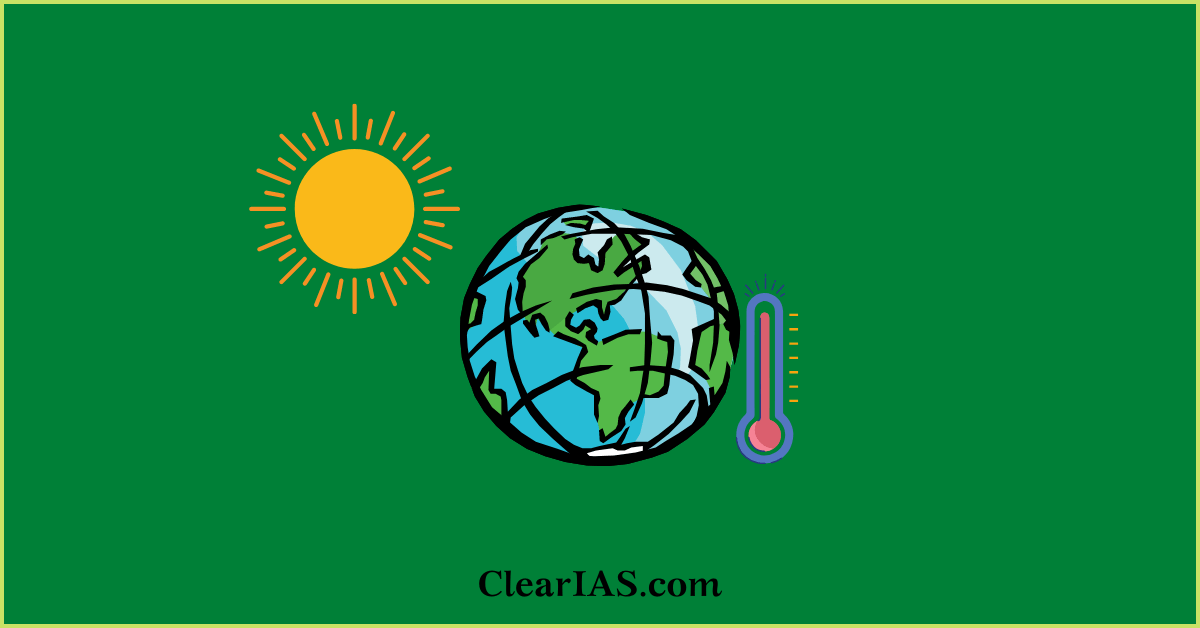
It's largely up to individual opinion whether they believe climate change is real or not. Some believe that it is too late for the planet to be reversed, while others think that civilization is on the verge of disaster if nothing is done. There is no doubt that global warming poses a serious threat to humanity. Global warming is already causing extreme weather, sea level rise, increasing environmental and public health hazards, as well as new and worsening climate conditions.

A recent survey by the Yale Program on Climate Communication indicates that the public is more than ready for all kinds of actors to do more to address the problem. In 2020, the survey showed that citizens, businesses, local governments and the federal government all supported action to address this problem. However, most respondents did not agree that the United States should do more. This is not surprising considering that the US has historically been the largest emitter and contributor to global warming.
In order to understand the relationship between public opinion and climate change, researchers surveyed a sample of over 700 Yale University students. Researchers discovered that while most people support all actors, the proportions of support vary in systematic ways. These differences could lead us to different policy prescriptions. However, it is also possible for different cultural groups to be influenced by climate change.
The jury is still out about the effectiveness of each solution, but some solutions have proved ineffective, like the old-fashioned approach of statism. A polycentric approach, which allows for multiple actions at various scales, is more likely to be effective and will attract wide support. Future research should investigate how the relative effectiveness between different solutions changes over time. It is also important to examine whether or not the same applies for state- and local government actors.
The Yale Program on Climate Communication has also discovered some important findings. For instance, it is possible to reduce climate change by making small, everyday changes that can be made in the daily lives of people. The increasing concern for the environment by young people is another noteworthy finding. It is more common for young people to be affected from climate change's physical impacts, such heat waves and coastal flooding.

Furthermore, the best solution will appeal to all cultures and be both feasible and practical. It is possible that some people prefer to avoid the subject altogether due to the fact that the best solution will require widespread public support.
Finally, the most effective way to address the problem is the polycentric approach, which requires multiple scales of action. However, this type of approach can only be successful if the public supports it, which is not always the case. For example, individualists tend to be less supportive of a polycentric approach. They prefer a more streamlined, top-down approach.
FAQ
What role does climate change play in greenhouse gas emissions?
Climate change is driven by greenhouse gases. They act as an invisible layer around the Earth trapping infrared radiation. This warms the atmosphere. Without them, the Earth would be much colder today than it is today.
The human activity of burning fossil fuels, or other industries that generate emissions, can create greenhouse gases. These activities will continue to increase heat trapping in the atmosphere. This will lead to increasing temperatures and extreme weather conditions.
The most abundant greenhouse gas is carbon dioxide (CO2), which is released when burning fossil fuels such as coal, oil, and gas. Other major contributors to climate changes include methane, nitrous oxide and fluorinated gases (F-gases).
Human activities have caused a significant increase in greenhouse gas concentrations since preindustrial times. This has led to global warming and an increase in temperatures all over the world, as well as in our oceans. It's also causing changes like more severe storms and droughts as well as melting glaciers and rising sea level.
Humans must reduce greenhouse gas emissions to avoid further climate change damage. This can be done by switching from fossil fuels to renewable energy sources such as solar and wind power. We can also take measures such as reforestation or adopting agricultural methods that allow the soil to absorb more CO2 from the air. These activities will reduce atmospheric greenhouse gas concentrations and create a healthier environment that supports all life.
What are the consequences of climate change for society and the environment?
Climate Change has wide-ranging effects on the environment as well society. Climate change can have many effects on the environment. These changes can have serious implications for human populations, creating instability in communities, intensifying poverty and insect-borne diseases, altering human migration patterns, and destroying vital habitats.
Already, climate change is having an enormous impact on the environment as well as societies around the globe. Global temperatures are expected to continue to rise and this will only get worse in the future.
One of the most widespread effects of climate change is the rising ocean levels due to melting of ice caps. This causes shoreline erosion along many coastlines and increases the risk of flooding for coastal communities. Saltwater intrusion is also a problem, and can negatively impact freshwater supplies along the coasts of many countries.
Climate change is causing extreme weather events like heatwaves, droughts and other severe weather to occur in many countries. These events result in mass destruction of homes or businesses and can lead to relocation or complete loss of life. In addition, intense storms create further risks related to flooding or landslides that increase damages to infrastructure such as roads and railways.
The increasing frequency of wildfires that are caused by climate change has also led to devastating consequences for both habitats and those living nearby.
Such drastic changes in living conditions often result in displacement or even refugee crises when people move away from their homes either voluntarily or involuntarily because their towns have become too dangerous or no longer habitable given their altered climate conditions against which they cannot cope adequately.
People with respiratory diseases such as asthma are particularly vulnerable to dust storms from increased aridity. In addition, pest infestations are expected to increase significantly linked with higher temperature extremes - a phenomenon known as 'greenhouse bug' - leading to further damage to agricultural production that further affects global food insecurity numbers as fewer crops become available at worse nutritional qualities potentially bringing additional hardships upon marginalized populations already barely able make ends meet otherwise.
What is the role that individuals and groups can play in addressing climate-change?
Climate change is one the most pressing contemporary issues we are facing today. This issue affects everyone. It requires both our collective attention and individual action to make a positive difference.
Individuals play a vital role in addressing climate change and reducing its impacts. You can make changes to your daily life, including reducing waste and eating consciously. They can also get involved in political advocacy to promote sustainability-related initiatives in their community.
It is important that communities are involved in the larger climate change effort. They can implement policies that limit emissions by reformulating energy models based on renewable sources, promoting efficient infrastructure for cycling or electric transportation, reducing deforestation rates, or encouraging composting systems for waste management. This mission requires collaboration between communities in different cities and countries.
Furthermore, it is important to start education in the early stages and continue learning throughout your life. This will help individuals become aware of the issues at stake and understand our interconnectedness with other societies further away from our geographical location but similarly affected by global warming
Employers are ultimately responsible for fighting climate change. They can introduce corporate practices that emphasize sustainability and choose green alternatives whenever they are possible. This will have positive sociological and economic outcomes.
Individual and community actions combined with policies at the local level, as well as business transformation, will make a huge contribution to addressing global warming. They also help to protect humanity from long term harmful effects resulting from climate change.
How can the impact of climate change be reduced or mitigated?
There are many things you can do to lessen and mitigate the consequences of climate changes. These include reducing greenhouse emissions by using greener energy sources and better energy practices. It's important that people are educated about climate change. This encourages them to take responsibility for their actions.
Statistics
- Indigenous peoples and local communities receive less than 1% of all climate funding despite scoring wins for people and nature Africa's broken food markets must be fixed to tackle hunger (climatechangenews.com)
- The 100 least-emitting countries generate 3 per cent of total emissions. (un.org)
- This source accounts for about 10% of all the water that enters this highly productive farmland, including rivers and rain. (climate.nasa.gov)
- This source accounts for about 10% of all the water that enters this highly productive farmland, including rivers and rain. (climate.nasa.gov)
- According to the 2014 report on Climate Change Impacts, Adaptation, and Vulnerability (page 8) from the United Nations Intergovernmental Panel on Climate Change, governments at various levels are also getting better at adaptation. (climate.nasa.gov)
External Links
How To
How to educate Your Community about Climate Change, and Mobilize Action
Climate change education can take many forms - from online resources and interactive educational tools to classroom activities, simulations, and experiential learning programs. The following key elements are essential for effective climate change education
-
arming people with practical knowledge about the subject
-
Showing how individuals can make an impact
-
Participants are invited to engage in an open conversation about possible solutions
-
Inspiration through shared experiences that inspire action
Teachers can help communities to reduce their environmental footprints by offering comprehensive lessons in climate change for both adults and students.
Moreover, connecting scientific research with real-world examples offers a unique way to engage audiences in a meaningful dialogue. Participants also have the opportunity to observe positive outcomes and learn from them, which can lead to further innovation or replication within their organizations.
Participants are empowered by incorporating action-oriented activities in educational curriculums. This gives them the mental tools needed to create campaigns, petitions, and take local actions. It also allows them to be agents for social and political change or sustainability improvement initiatives. In addition, individual agency emphasizes the importance of participating in reducing emissions. It also shows participants' collective contributions to a greater outcome. Participating early in policy-making helps to encourage active participation. This allows for more equitable outcomes. We might be able, together, to increase public awareness of the effects of climate change and take appropriate action to reduce greenhouse gas emissions.